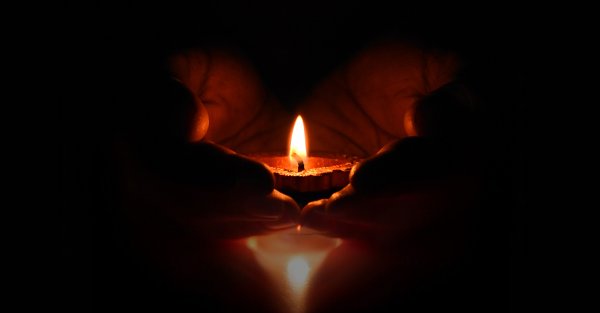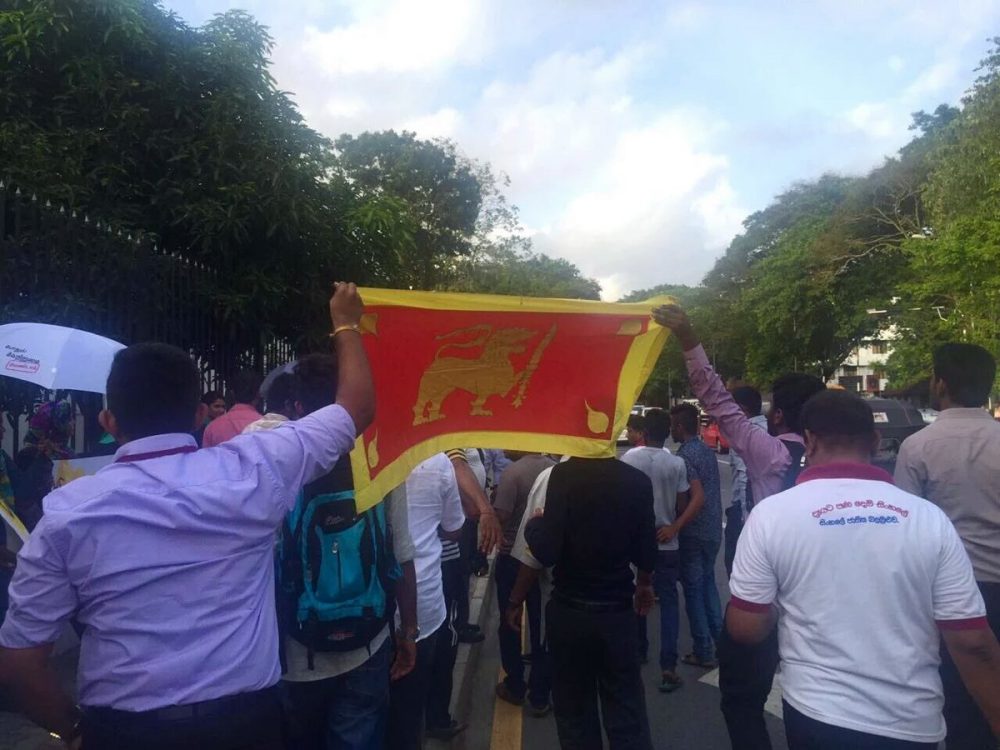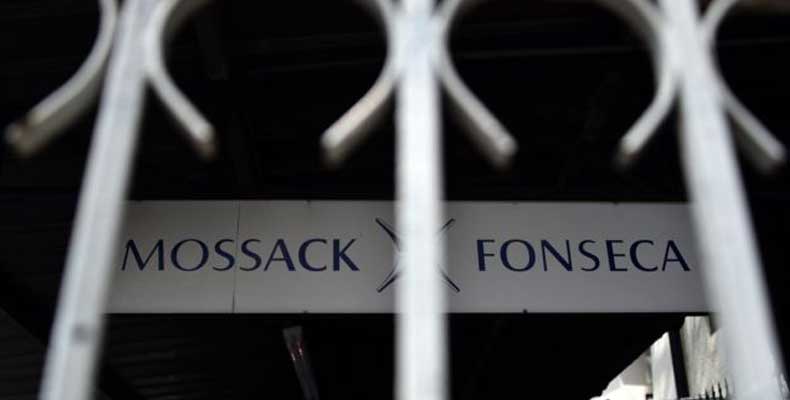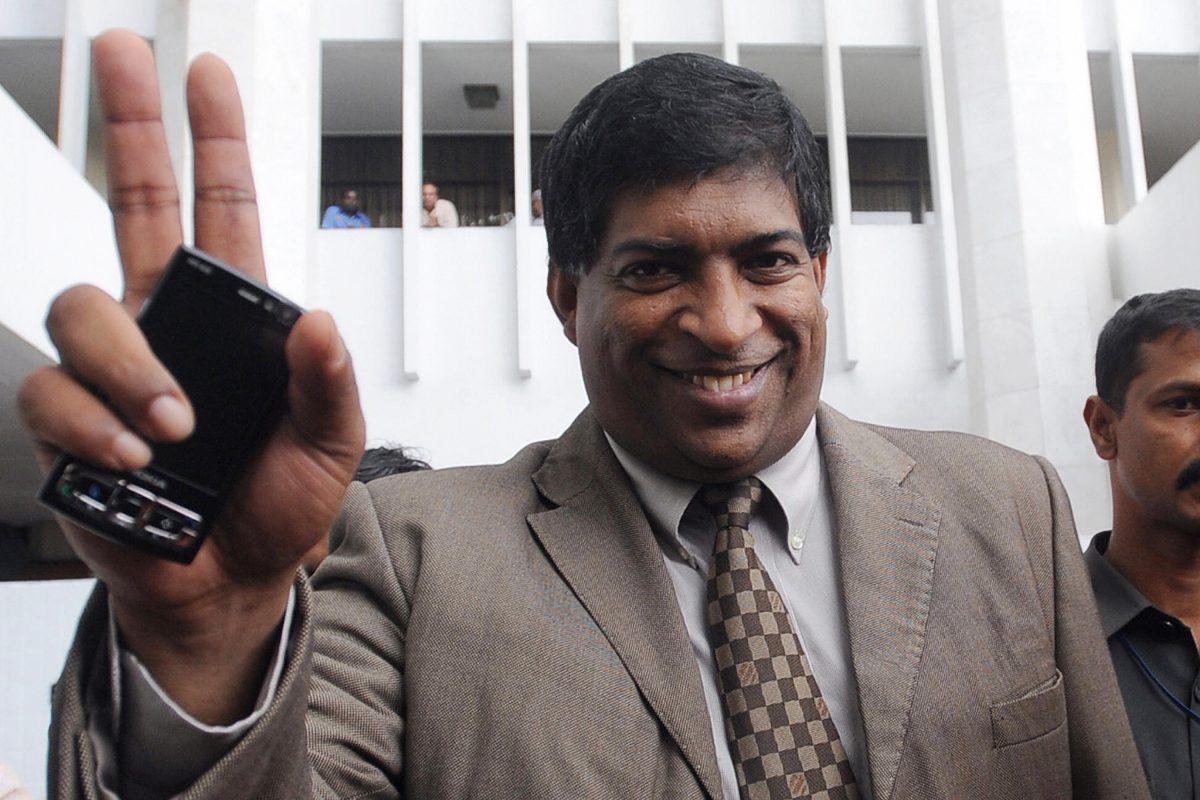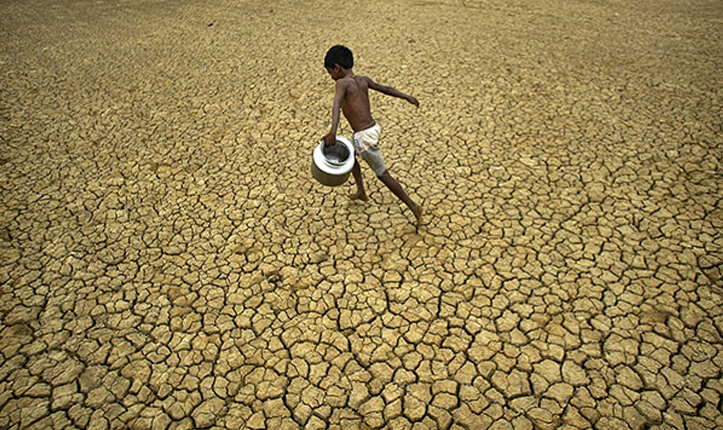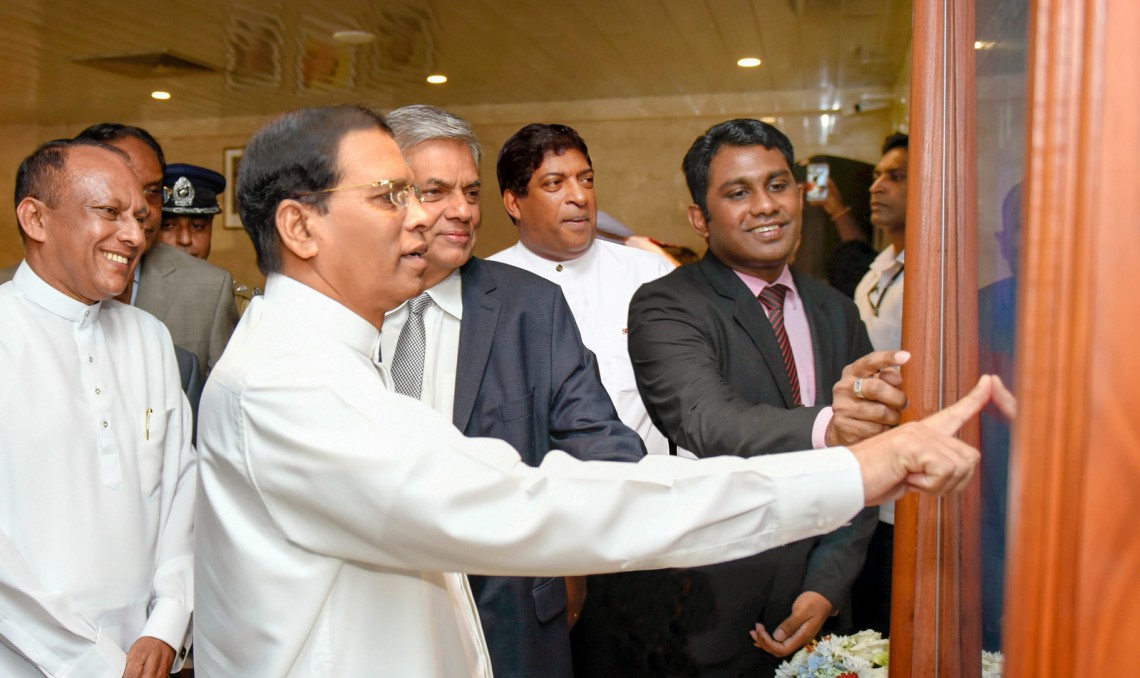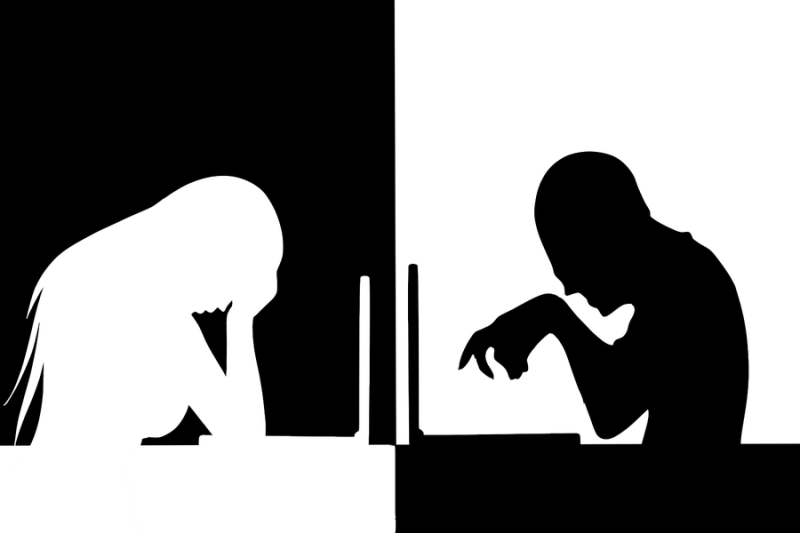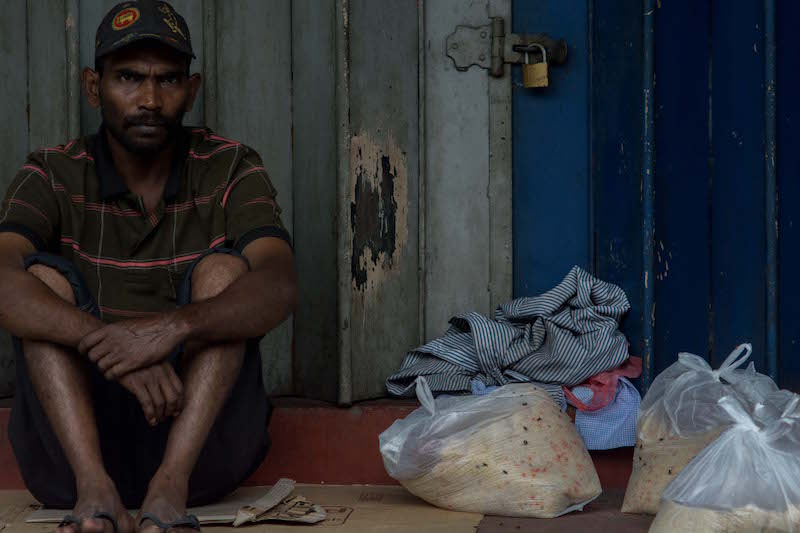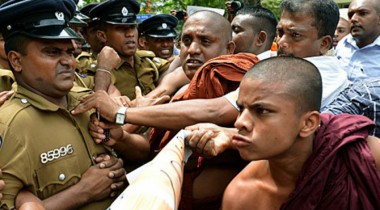
Before it was interrupted by Hurricane Mora, a campaign of baiting against Muslims was composing itself to cause serious harm. From April 16 to May 22, four petrol bombs were thrown at Muslim establishments and mosques, four Muslim-owned shops were set on fire, several properties were destroyed, and a few Muslims were bullied off their lands. The whole series of news items was in the passive voice; the doer was always unidentified, or at any rate, unarrested. Of these, the Bodu Bala Sena (BBS) was only demonstrably responsible for some racist speeches and a spree of vandalism in Onegama, Polannaruwa.
The rest of the events were so scattered that they would appear random, had we not had the prior experience of the Aluthgama riots. The authorities seemed to have acted swiftly upon the same fear. The police have obtained a warrant for the arrest of Galagoda Aththe Gnanasara Thero, the General Secretary of the BBS. The Magistrate of Hulftsdorp has also banned the Thero from leaving the country. For some, however, questions remain. Were this year’s incidents merely the flickering of a few maniacs, a short-run epidemic of tribalism? Or were we experiencing a political game-changer, the second phase of which is being patiently set up, along with its obligatory murders?
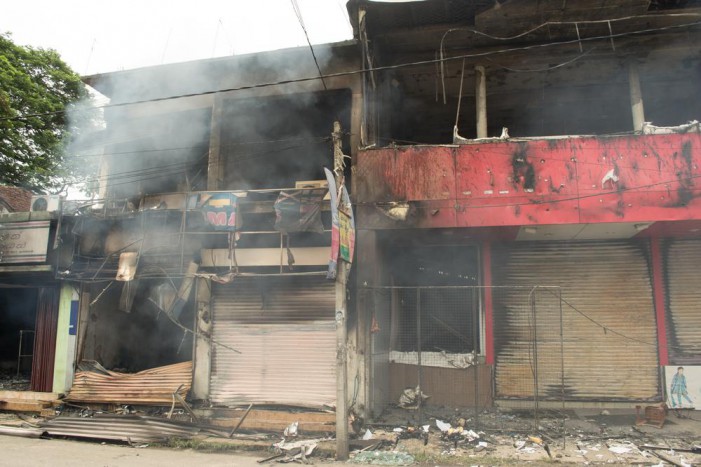
Muslim houses burnt during the Aluthgama riots. Image credit: Al Jazeera.
Just How Much Damage Did The BBS Cause?
Throughout the recent sequence of aggravations, the BBS dealt directly with its supporters in villages, bypassing the government. At a press conference on May 8, Gnanasara Thero alarmed his supporters about Burmese refugees who have landed in Sri Lanka to colonise the Sinhala Buddhists. He was referring to the 30 Rohingya refugees who had been intercepted by the Sri Lanka Navy after fleeing from the Myanmar military government in a boat. The Thero described the ethnically Muslim Rohingyas as anti-Buddhists who had been expelled from Myanmar for harassing Buddhist priests. He further said that Rohingyas, as rejects of Myanmar, Bangladesh, and India, should be unwelcome in Sri Lanka, too. This aspersion on a group of victims whose plight has won them international sympathy may seem unrelated to the other incidents. However, to the average Muslim, it communicates the same message: it is a reaffirmation of Sinhala-Buddhist entitlement.
To the average BBS supporter, too, all the events from April 16 onwards stimulated the same insecurities. Being better known for an attitude than for a manifesto, the BBS is easily perceived as an orchestrator of hate than as a participant. This in part explains why the media can casually quantify the BBS as terrorists.
Of course, the BBS does not see things quite the same way. Answering the arrest warrant with a press conference, the BBS justified its actions as a slower and altogether more lenient retaliation to a dangerously radicalising Islamism. Speaking at the conference, the General Secretary of the Sinhala Ravaya (a partner organisation of the BBS), Magalkande Sudaththa Thero, called out the hypocrisy of a government that ignores the communalism fostered by the State Minister of Child Affairs, Vijayakala Maheswaran, the Trade and Investment Minister Rishard Bathiudeen, or by the National Unity Front Leader, Azath Salley. Needless to say, the BBS—including its inspired arsonists and its tacit sympathisers—remains self-righteous, despite a percentage of the Sri Lankan population being convinced that they are non-negotiable evil.
The Story According To The BBS
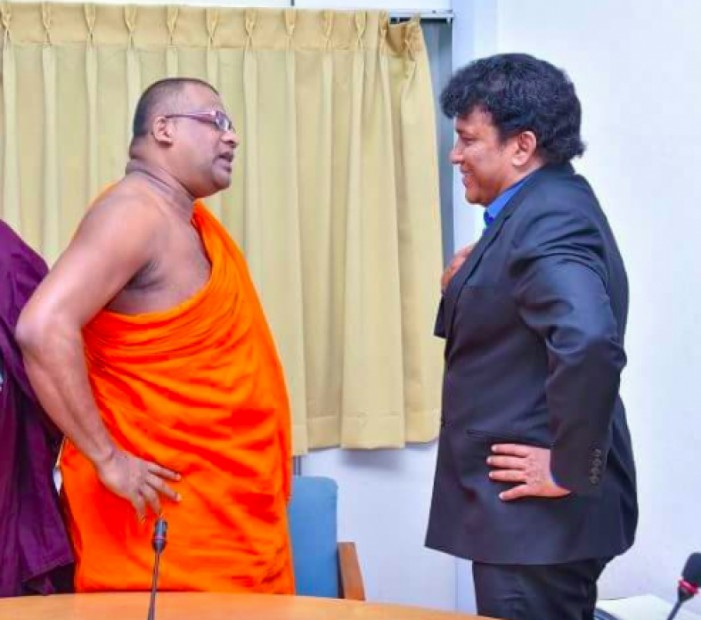
Gnanasara Thero confronts Minister Mano Ganesan. Image credit: Asian Mirror.
What happened in the days preceding the Aluthgama riots was an arms race, a competition of mistrust between the two communities. Before the first stone was cast, there was neither negotiation nor debate. This time, the BBS uncharacteristically confronted the Minister of National Co-existence, Dialogue and Official Language, Mano Ganesan, on May 17. By storming into the offices of Ganesan and lecturing him on his job, Gnanasara Thero may have intended a gesture of dominance, but it also gave the public a glimpse of the BBS’ grievances.
“The Thero spoke in enraged tones,” said a representative from the office of the Minister, “and said that co-existence has already broken down in some parts of the country. He said that Buddhists in areas like Ampara face a lot of problems because of anti-Buddhist racists.”
Clarifying the circumstances of that day, the Media Coordinator of the BBS, Erandha Navaratne, told Roar that Ganesan had cancelled a pre-arranged meeting five minutes before its scheduled start, when Gnanasara Thero had already arrived at the premises. Given the context, he said, Gnanasara Thero’s decision to demand an audience with the Minister and challenge his way to the Minister’s offices would seem far less drastic.
“As the main race of this country, we like co-existence,” said Navaratne. “However, the other races are testing us. They are systematically destroying Buddhist relics and sites of worship.”
According to Navaratne, Islamic expansion was responsible for bulldozing the Muhudu Maha Vihara of Pottuvil, Ampara; sabotaging the development of the Manikkamudu temple; and destroying the satellite stupas of the Somawathi stupa.
“Even the Minister of Buddha Sasana, Wijedasa Rajapaksa, went with us to Ampara and agreed that Buddhist relics are being systematically destroyed,” said Navaratne.
The Objective Truth
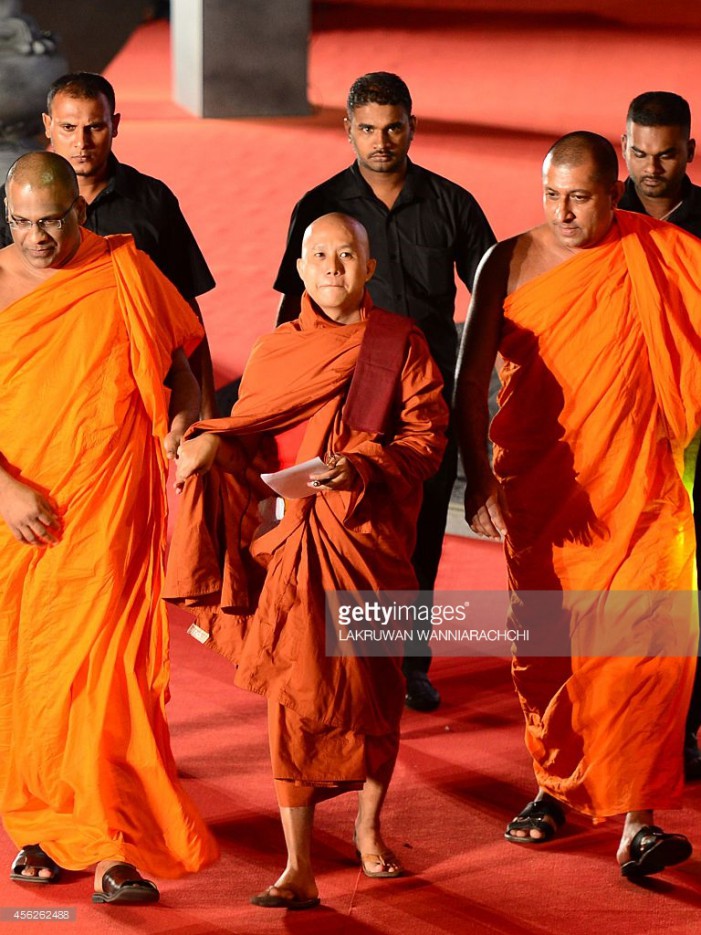
September 2014: The BBS welcomes Ashin Virathu, the controversial leader of the 969 movement in Myanmar, at a BBS conference in Colombo. Image credit: Getty Images/Lakruwan Wanniarachchi.
These counter-claims of victimisation are not simply pretexts that the BBS coughed up when law enforcement tightened around them. They consistently featured in the rehearsed statements that the BBS had been making at interviews. In an open letter addressed to President Maithripala Sirisena, the Hela Bodu Saviya, another organisation that has historically allied with the BBS, lists a series of injustices to rival that of the Muslims. Among them are allegedly racist statements made by Northern Provincial Councillor Sivalingam and Northern Chief Minister Vigneswaran; the memorialisation of terrorists despite a court order banning it; Minister Rishard Bathiudeen allegedly colonising the Kulamarippu Reservation with Muslims against the Forest Department; and the unresolved attacks on the novice monk of Onegama, Medamaluwa Viharaya, Polonnaruwa.
Most of these are infringements of already existing laws, and are not—as the letter insinuates—special crimes facilitated by an anti-Buddhist government. If anything, these claims reveal that what a BBS supporter wants is not just a Buddhist supremacist government, but a Buddhist supremacist government that gives constant reassurance to Buddhist supremacists.
Regarding the claims of the endangered Buddhist archaeological sites, which the letter repeats, the Director General of the Archaeological Department, Dr. Senarath Dissanayake, said that there may be some cause for concern.
“It is partly true about Ampara,” said Dr. Dissanayake. “Certain villagers have displaced the markers we have laid out demarcating the archaeological site, and they have developed habitations. It is also true that one of our sites in Kantale, Trincomalee, was bulldozed in recent times. This was quite common during the war. Some archaeological sites were destroyed, and in some places, they had built kovils. For example, the LTTE radio broadcast was done from our archaeological site in Kalladi, Trincomalee. The LTTE had destroyed a stupa and installed their radio antenna on it.”
However, Dr. Dissanayake said that these should not be interpreted as acts of wanton vandalism or government neglect. Events such as villagers encroaching on heritage sites are routine, owing to a lack of education.
“We already removed the illegal construction at Muhudu Maha Viharaya,” said Dr. Dissanayake, “and the Somawathi stupa incident took place 10 years ago. We have arrested the perpetrator and taken the necessary steps long ago.”
Funding Terrorism With Publicity
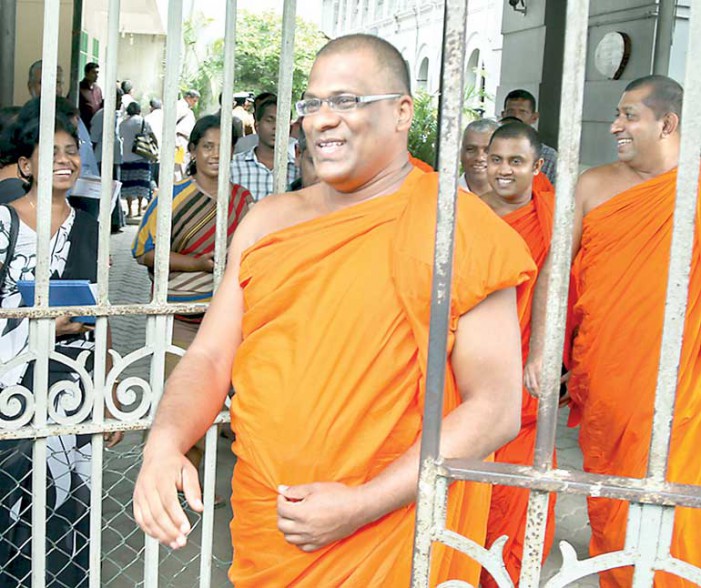
A warrant has been issued for the arrest of Gnanasara Thero. Image credit: Daily FT.
What we know about the Aluthgama riots has been reverse-engineered from unvetted citizen journalism and some low-resolution smudges that circulated in social media. Between June 15 and June 18, 2014, information was choked in part by state censorship, and in part by self-censorship. Even this year, with the Sri Lankan media enjoying the most freedom it arguably ever did, the anti-Muslim violence got very little print space and almost no screen-time. The implied argument is that publicity only emboldens organisations such as the BBS and their counterparts. People who believe this also believe that the majority of Buddhists, Muslims, Hindus, Burghers, Boras, etc. are peaceful, life-loving folk, insulated from racists and the martyr syndrome. However, this does not explain how both in 2014 and this year, the hate spread virally from mobile phones to chain-mail to Facebook campaigns.
Sri Lanka has repeated the formula of mutual distrust, intolerance-mongers, and violent outbreaks enough times now. We must accept that inside the little island of Sri Lanka, we have built smaller islands of communalism for millennia, and that most people think that organisations like the BBS (or the Muslim exponents of child marriage or Tamil supremacists) stand for some truth when cleaned of their demagogy.
We long owe ourselves an honest discussion about racism. Self-deception and stubborn optimism are just distractions.
Featured image courtesy Sri Lanka Mirror
